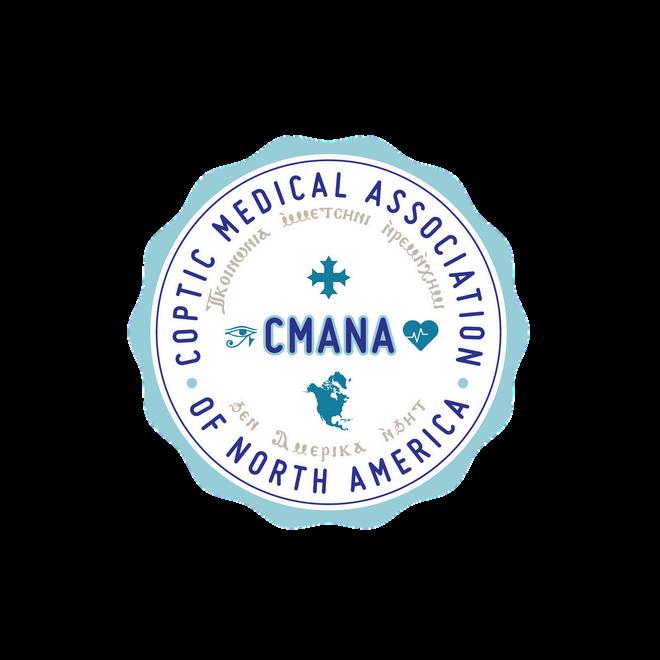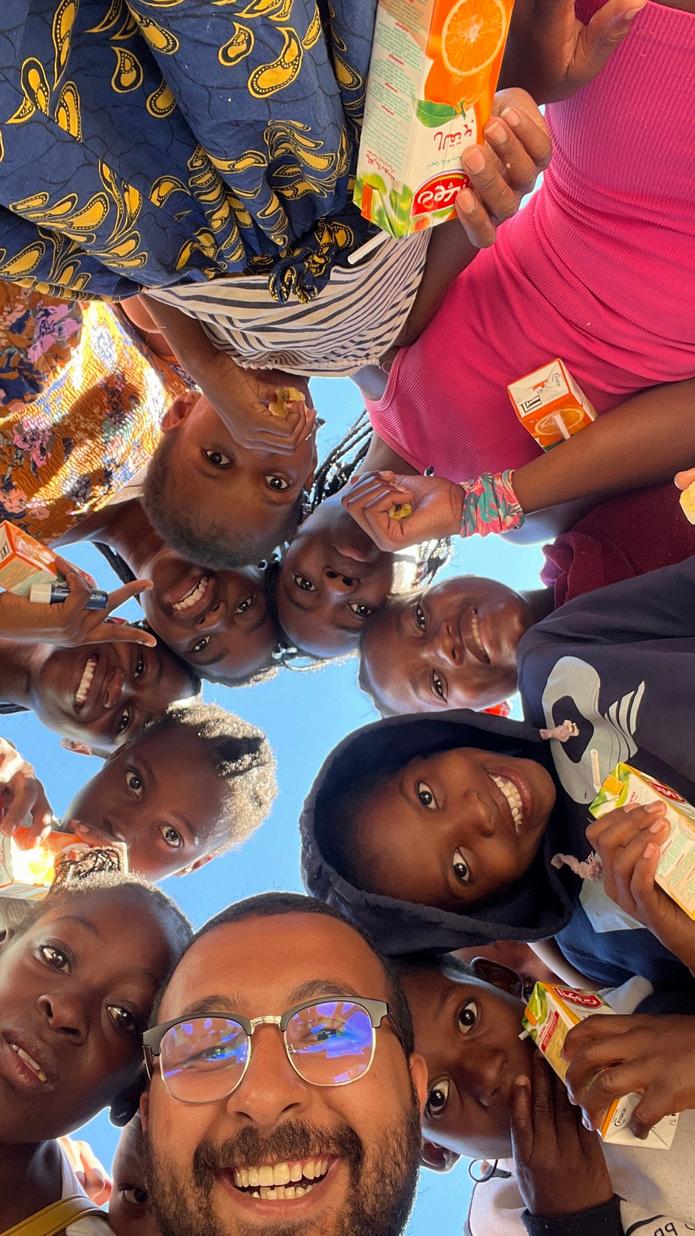QUARTERLY MISSIONS NEWS

NEWSLETTER HIGHLIGHTS:
Stories from Namibia 2023 - 2
Scenes from Namibia 2023 - 7

Namibia 2023
By the Numbers - 8
Important Upcoming
Dates - 10 A Message from the CMANA Missions Committee - 11



Stories from Namibia 2023 - 2
Scenes from Namibia 2023 - 7

Namibia 2023
By the Numbers - 8
Important Upcoming
Dates - 10 A Message from the CMANA Missions Committee - 11


Despite its label as an “upper-middle-income country,” Namibia’s healthcare system is tragically lacking. The Namibian people suffer from many conditions that would be managed through routine and relatively affordable medical care if they were living in the United States. A shortage of doctors, a lack of access to facilities and providers, and unaffordable basic care all contribute to a landscape of suffering that is overwhelmed with need. Malnutrition, physical and sexual abuse, and epidemic-level HIV/AIDS and tuberculosis further compound the health crisis in this southwestern African country

Dr. Hani Ashamalla, president of CMANA, has made several medical mission trips to Namibia during the last few years. In April 2023, he led his sixth mission. On this trip, a group of 40 people representing neurosurgery, plastic surgery, gynecology, orthopedics, ENT, anesthesia, cardiology, pain management, general medicine, psychiatry, psychology, dental, optometry, ophthalmology, pharmacy, physical therapy, and more traveled to Namibia to serve for one week. The team achieved several firsts on this trip, including establishing a pain management program and an optometry program.
Helping Namibians to See
“I was running on caffeine and the Holy Spirit,” said Maryann Youssef, an optometrist who lives in Tampa, Florida.
Working ten- to twelve-hour days helping correct patients’ vision requires the type of energy that only God can provide. Youssef worked alongside an ophthalmology resident to treat as many as 200 to 300 patients daily Her husband, Mina (who works in marketing but is familiar with the world of optometry), served as their optometry technician, doing intake and triage.
At the end of the week, the team realized that altogether they had treated more than 1,000 patients. “You see what these two doctors did in Namibia. They saw 300plus patients in a day That in itself is a miracle,” said Mina Youssef
“On other mission trips the nonspiritual ones I’ve taken, I would see maybe 30 people a day. I’ve never experienced anything like this before,” said Maryann Youssef.
In Namibia, obtaining glasses is just not affordable. Youssef says it’s even more expensive there than in the States Helping Namibians see clearly is an overwhelming need; no one has glasses.
“ I was running on caffeine and the Holy Spirit.”
Maryann Youssef, Optometrist
“One of the patients that I saw really stuck with me,” said Youssef. “He had a lot of health issues, but just by simply putting a pair of glasses on him, he had such tremendous gratitude to the Lord. Experiencing that moment has stuck with me every day since. When I put the glasses on him, he was tearing up and he just kept saying, ‘God is so good. God is so good.’ His level of gratitude for something so simple impacted me ”
Re Tex is a ven men He wor area
pain management was needed. Hundreds of patients took buses from seven hours away just to get relief from their chronic and debilitating pain. Bishai worked alongside a physical therapist and other techs to treat knees, shoulders, carpal tunnel, elbows, and trigger points.

When he realized he didn’t have the right equipment, Bishai found a stack of needles only to discover they were blunt and wouldn’t pierce the skin. Finally, he found small, IV-like cannulas that the needles would fit perfectly inside of So he was able to do the skin puncture with a cannula, then put the blunt needle through it, and then inject the medication
In the mission you’ll see God’s work all the time.
From managing the workload to solving issues with equipment and supplies, Bishai describes his experience as remarkable. He spent twelve-hour days seeing dozens of patients, and then he’d spend several hours on telehealth appointments with his patients in the States into the early hours of the morning
And when it came to having the right supplies at the right time, God intervened
Bishai calls the first issue with the blunt needles a “miracle ”
More miracles transpired for Bishai. In a procedure that required a three-and-a-half-inch needle, he opened the package only to find a two-inch needle. Yet, once he inserted it into the patient and looked at it on the x-ray, he said, “I found myself right on the border where I was supposed to enter. And I could not believe my eyes I said this was impossible to happen by the common sense. It just doesn’t happen.”
And in a loaves-and-fishes-type scenario, the pain medication was sufficient to treat the patients who sought relief. “The medication was enough, somehow Somehow I don't know how the medication was enough. At that time, there was a severe shortage of bupivacaine and lidocaine in the United States. We could not find lidocaine anywhere But for the mission, there was enough for all the cases to be finished.”
Emad Bishai, psychiatrist and pain management specialistParticipatinginthetripisnotonlyspiritually edifying,butitcanalsohelpsharpenskillsand preparetheseprofessionalsforfutureworkonce theyarehome.
TripleaderHaniAshamallasaysthateventhough theteamsarebriefedonthepatientsbeforehand, thingscananddochange,whichrequirescreative problem-solving.Thedifficultylevelsofthecases arealsochanging:
“Thecomplexityofthecasesaregettingbiggerand bigger.Eachyearwefindourselvespresentedwith themostcomplexcases,whichoursurgeonsnever waverinconducting,andthankfullyourresultsare superb.”
MinnesotanRevanaAwadallahpracticesdentistry andcallsherNamibiamissionexperience“eyeopening.”
“Currently,ifI’minaprocedureandit’sreally difficult,inmyhead,I’mprayingasitgoesalong. ExactlyhowwedidwhenwewereinNamibia,and I'vebeenabletokindoftakeonmorecomplexcases intheofficebecauseoftheexperiencewithtaking outteethincreativeways.That’sagreatpractice builderwhereIcankeepmypatientsunder

my care, and I don't have to send them out to any specialists or anything like that. That's something that they appreciate as well.”
Her time in Namibia was also a boost to her faith. She recalls an inexplicable tooth extraction at the end of one long day:
“This patient population of Africans has denser bone and teeth and deeper teeth roots, so those are the most difficult to extract. I was trying to extract a tooth, and I was so physically tired There was one point where my arm was giving out. The tooth wasn't loose at all at that point. I'm trying; I'm pulling at it So I said, ‘God, please help me. I'm so tired!’ And then I put some gauze around it, and I take the gauze out and literally the tooth was just there ”
She describes the experience as miraculous with no effort on her part: “I didn't push I just stood there for one to two minutes to help control the bleeding. And then I just took out the gauze, and the tooth was right there It just popped out It was definitely not me!”
Besides the medical, dental, pain management, and vision care offered, the team also conducts outreach activities. These run the gamut from offering spiritual lessons and playing games with kids to delivering mental health counseling to vulnerable populations
The Namibia missions team is unique in that psychologists and psychiatrists are included
and counseling is offered Retired psychologist Nagwa Maksy is a missions team veteran. In fact, she delivered the very first mental health therapy to Namibians
“When we started out, there was no mental health part of the mission,” said Maksy “It was basically medical and service, and I was going for that: to provide activities for the kids and support the medical team But then we recognized that there is a need for mental health. Dr. Hani suggested I give a talk; I think it was about bullying And at the end of the talk, Dr. Hani said ‘If anybody wants to talk to Nagwa, she's going to be available,’ and that was the beginning And it really was amazing. I had a steady stream of kids that wouldn't stop. So that's how it started.”
Since that time, Maksy has served in the prisons and given talks and educational presentations to local mental health counselors, teachers, and military leaders.
Because investing in the country beyond the trip’s five days is important, the team has established a relationship with the University of Namibia Those team members who have the rank of associate professor in one of the American universities give lectures and instructional seminars to their Namibian counterparts, physicians, specialists, and medical students.
Another important “leave-behind” is prescription medication “We bring around $300,000 worth of medications to the people of Namibia,” said Ashamalla. “[After we treat patients,] whatever is left over which is usually more than half are donated to the Ministry of Health hospitals.”
Even though the days are long, the need is overwhelming, and the work can be draining, participants usually make repeat trips to Namibia after their first time.
They say that doing this type of mission work is part of their calling and passion. They are delighted to share with others that which God has given them.
“I love the quote, ‘The meaning of life is to find your gift and the purpose of life is to give it away ’ I think it's important to use your God-given talent to help other people. And honestly, you're the one who's really benefiting from the service,” said Maryann Youssef
Plus, the mission trip is just plain fun Living and working side-by-side with Christians devoted to a common purpose creates lasting friendships. Nightly devotions, social events, and other opportunities for fellowship help the group know one another better.
“Oh, there's a lot of fun and camaraderie that takes place. We formed lifelong relationships. You meet the nicest people on these missions! It’s not all pain and work,” said Maksy
With a full house in attendance, these events are vital in helping to continue the work that was begun after CMANA leaves.
Treating kids in the pediatric clinic


Ifyou'redoingGod'swork, there'snoneedtoworryabout

 Medical outreach campaign in Windhoek
The Namibia pharmacy team
Medical outreach campaign in Windhoek
The Namibia pharmacy team



 Medical clinic at St. Mark Coptic Church in Windhoek
The Namibia dental team
The anesthesia team in the recovery room
Medical clinic at St. Mark Coptic Church in Windhoek
The Namibia dental team
The anesthesia team in the recovery room

See how much our teams accomplished in one week in Namibia
Neurosurgery - 5
Plastic Surgery - 23
Gynecology - 27
Orthopedics - 16
ENT - 13
Anesthesia
Pain Management - 629
General Medicine - 2000+
Psychiatry/Psychology
5 schools, 1 correctional facility - psychological counseling, entertainment, dental screening, medical screening
Dental - 900 patients/350 extractions
Optometry - 1045 patients/400 glasses dispensed
Pharmacy - 4500+ prescriptions dispensed
Physical Therapy - 220
Cardiac Stents - $50,000
Medications - $425,000
Eyeglasses - $20,000
We are exploring adding new locations and dates for 2024. Those will be announced in our next newsletter. To ensure you are getting notifications for future trips, please email us at missions@cmanamerica.org.
Ethiopia: February 3-10
Registration closed
Namibia: March 10-17
Registration closed
Bolivia: July 20-27
Registration opens in March
Bolivia: August 24-31
Registration opens in April
Egypt: November
Details and registration TBD
Welcome to our first edition of CMANA’s Quarterly Missions News! We are pleased to tell some of the stories from the CMANA trip to Namibia in April 2023 We hope you’ll be encouraged to read about God’s work through CMANA in Namibia
Located in southwest Africa, Namibia is the 34th largest country in the world with a population of 2.3 million. As you’ll read in this newsletter, the Namibian people have myriad health needs The demand for surgeries, basic care, and medications far exceeds that which a team of 40 health care providers should be able to deliver in a week’s time.
On God’s timeline, however, the CMANA team, led by Dr Hani Ashamalla, is able to do just that Our teams treat thousands of people, bringing relief to their pain and suffering Thanks be to God!
We are indebted to the Namibian officials with whom we work. The Namibian Ministry of Health, Correctional Services, and Ministry of
Education recognize the needs of their people and are integral to facilitating our service in their country.
Thanks also to St Mark’s Coptic Church in Windhoek Serving as our “home base” in Namibia is crucial to our success, and we are grateful for it.
Finally, we want to thank the people of CMANA who make this important outreach possible: the members of the missions committee and their work remotely while the teams are “on the ground”; Dr Hani and his dedicated and tireless leadership; and the men and women who obey when God says, “Go ” We are grateful for all of you , the gifts God has bestowed upon you, and your willingness to use them to help others, bringing Him glory
—MINASAWIRES, CMANA Missions Committee Co-director

facebook.com/cmanamericaorg